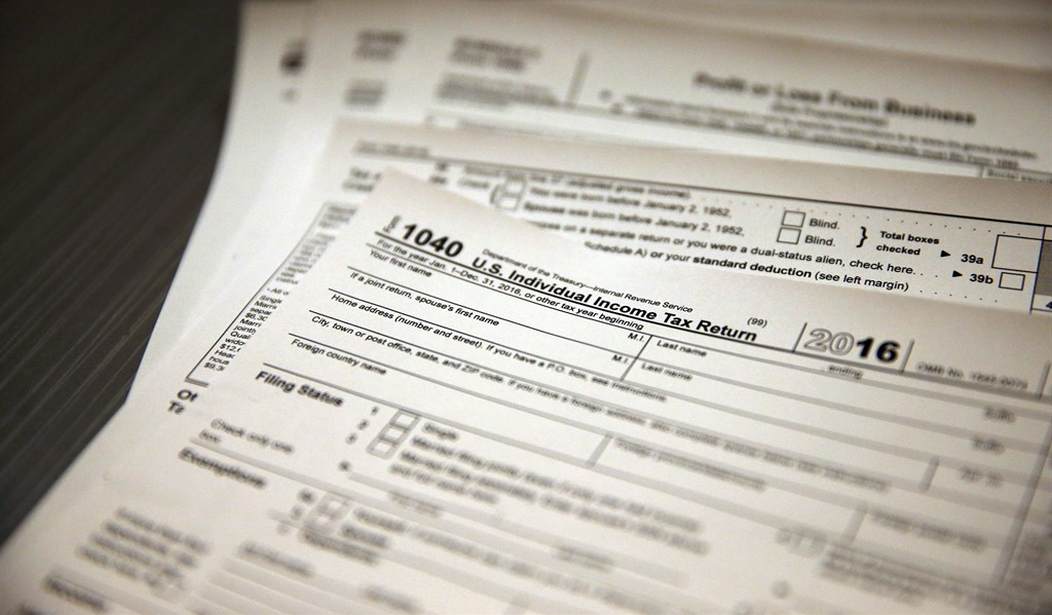The editorial board at the Washington Examiner published an interesting analysis today of one of the many spending proposals being pushed by Joe Biden this year. It deals with changes to our tax policy that the Democrats are trying to push through. One of those proposals is the effort to increase the child tax credit and make it permanent. Given the justifiable sympathy that many of us feel for parents who are struggling to raise children during difficult times, that tends to be a fairly popular idea that’s easy to support, right? But as the Examiner points out, a closer look at the specific changes reveals that this isn’t really a “tax credit” in many cases because people who don’t even pay any federal taxes at all are still in line for a check.
The policy in question is Biden’s quest for a permanent expansion of the child tax credit. But as Rubio’s memo points out, calling this policy a “tax credit” is highly misleading. As modified by Biden, this benefit is given to all parents, whether they have any tax liability or not. So even if parents pay no federal taxes, they still get a check from the government under this policy.
Biden’s policy is so lax, in fact, that one need only parent to qualify. Just let the IRS know you have a child, and your check will be in the mail. In this sense, Biden’s supposed “child tax credit” is really much more of a universal basic income for parents. That should worry anyone who has followed family policy in the U.S. for the last 50 years.
So what this change would do is convert what has traditionally been a popular tax credit into a universal basic income for parents. The Examiner argues that a program such as this provides a disincentive toward both marriage and work. We can debate that angle if you wish, but I found myself more interested in the linguistic tricks on display here. They aren’t uncommon at all in the halls of government, sadly. If you do some polling on the popularity of both child tax credits and taxpayer-funded guaranteed income programs, you will find that the former is far more popular than the latter.
There are more examples of this phenomenon making the rounds this year. Consider the pandemic relief programs for both restaurant owners and farmers that the Biden administration attempted to push through. Not many people would be opposed to seeing the government lending a hand to employers and farmers who were knocked down by the plague and the ensuing government shutdowns. But in each case, the programs either excluded white business owners and farmers entirely or pushed them so far to the back of the line that the money would run out long before they saw a penny of it.
Rather than serving as “pandemic relief” for all Americans, the reality of those programs was something else entirely. Do you know what it’s called when the federal government starts doling out cash that only goes to Black and other minority citizens? It’s called reparations. Just as with the previous example, “pandemic relief” for farmers polls far better than reparations. Both of those programs have been blocked by the courts, but the effort was clearly being made to push them through.
These word games are frequently played in the opposite direction as well, attempting to take a popular concept and gin up opposition to it. Consider the election integrity laws that have recently been passed in Georgia and other states. Opponents refer to them as “voter suppression” laws. (Georgia still has more early voting days than New York, by the way.) The media dutifully plays along with this scheme, throwing around the label of “voter suppression” without offering any examples of voters who are actually being suppressed. It remains ridiculously easy for any eligible voter to cast their ballot, while these laws simply seek to take some of the slack out of the system that leaves the process open to errors, if not intentional attempts at voter fraud.
We could launch into an exploration of how hilariously inaccurate the names that are applied to legislation are as well, but I’m sure you get the idea. (The “For the People Act” comes to mind immediately.) Shakespeare wrote that a rose by any other name would smell as sweet. There’s plenty of name-changing going on in Washington these days, but the smell is generally decidedly different.







Join the conversation as a VIP Member